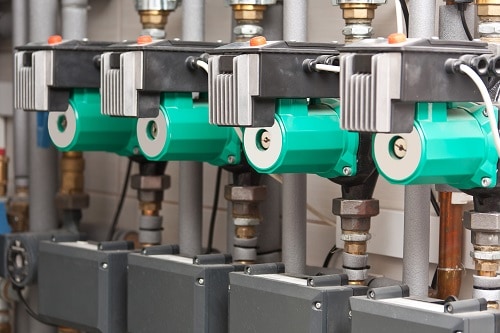LONDON, February 7, 2019 – The chemicals industry in Europe is in the midst of a huge transformation with manufacturers looking to redefine their value proposition and explore new business models. Encouraged by the gradual recovery of oil prices, chemical manufacturers are increasing their demand for centrifugal and positive displacement(PD) pumps. Plus, the European Commission’s directive to industries to reduce energy consumption is creating a fertile market for smart, intuitive, Industrial Internet of Things (IIoT)-enabled pumps with asset monitoring features.
The total pumps market in Europe generated estimated revenue of $1,334.7 million from the chemical industry in 2018. Centrifugal pumps used in the chemical processing plants represented 75.6% of the total pump market, and the remaining 24.4% of the market was held by positive displacement (PD) pumps in 2018. The compound annual growth rate for the total market is an expected 2.0% through 2025.
“Pump manufacturers offering value-added services such as end-to-end monitoring of pump performance throughout their lifecycle to increase energy efficiencies will remain competitive,” said Kiravani Emani, Industry Analyst, Industrial team at Frost & Sullivan. “Furthermore, the shift towards digital chemical plants will create opportunities for pumps embedded with connectivity and intelligence capabilities, as they can aid predictive maintenance, reduce asset failure and, consequently, prevent the shutdown of plants.”
Frost & Sullivan’s recent analysis, European Pumps Market in the Chemical Industry, Forecast to 2025, evaluates the various types of centrifugal and PD pumps that are used in the chemical processing industry. It includes detailed assessments of pump adoption across sub-industries such as basic, specialty, agro, and consumer chemicals. It evaluates the opportunities across Germany, France, Italy, the UK, Scandinavia, Iberia, Benelux, Eastern Europe, and the rest of Western Europe. It also includes technology perspectives and the role of IIoT in the pumps market.
“As chemical manufacturers experiment with flexible and modular factories to efficiently manage various product lines, custom-made pumps that are robust and adaptable to mobile production lines will enjoy greater uptake,” noted Emani. “The demand for pumps will be particularly high in France, Spain, Italy, Belgium, and Poland, as chemical manufacturers look to make the most of the availability of skilled workforce, strong logistics network, and access to raw materials in these countries.”
Pump manufacturers can widen their footprint and increase revenue share by tapping the following growth opportunities:
- Differentiation through product performance and reliability rather than just price and product range.
- Provision of remote and condition monitoring services that help predict failures and reduce maintenance costs.
- Mergers & acquisitions with automation and IoT vendors to aid chemical manufacturers transition towards smart manufacturing in the long term.
- Establishment of strong distribution network as end users prefer to partner with pump manufacturers that guarantee timely delivery of services.
- Provision of value-added services that include remote monitoring of pump performance, proactively replacing and servicing the equipment before it fails.
For further information on this analysis, click here.
















